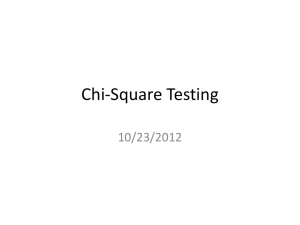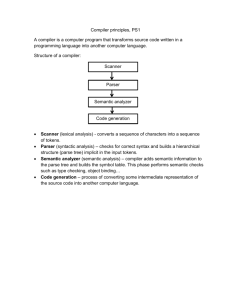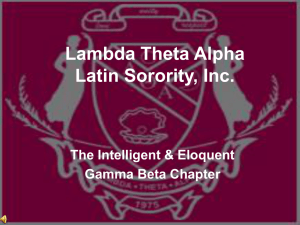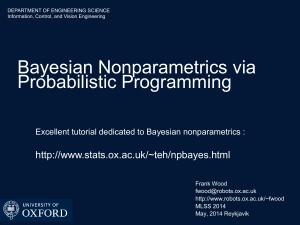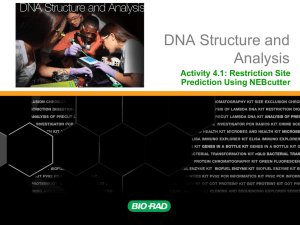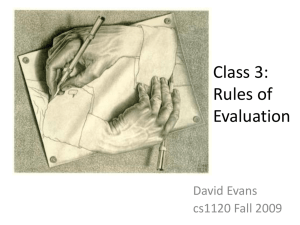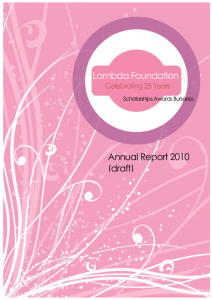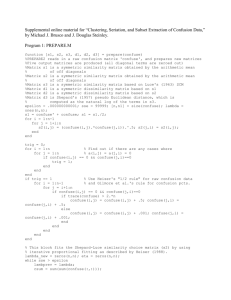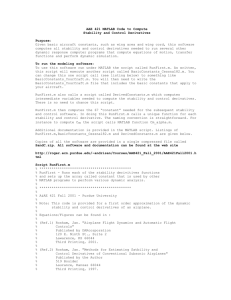Nominal Variable testing
advertisement
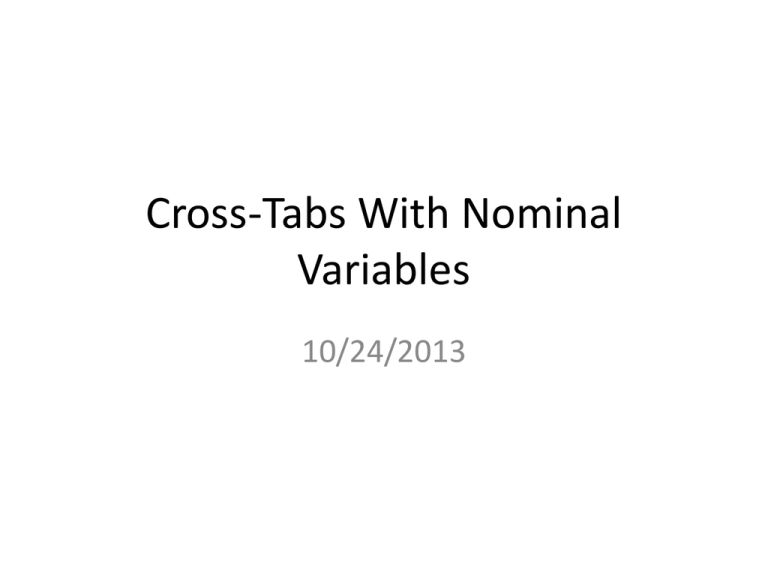
Cross-Tabs With Nominal Variables 10/24/2013 Readings • Chapter 7 Tests of Significance and Measures of Association (Pollock) (pp. 155-169) • Chapter 5 Making Controlled Comparisons (Pollock Workbook) • Chapter 7 Chi-Square and Measures of Association (Pollock Workbook) OPPORTUNITIES TO DISCUSS COURSE CONTENT Office Hours For the Week • When – Friday 10-11 – Monday 10-12 – Tuesday 8-12 – And by appointment Course Learning Objectives 1. Students will be able to interpret and explain empirical data. 2. Students will achieve competency in conducting statistical data analysis using the SPSS software program. A test of statistical significance CHI-SQUARE What is Chi-Square? • A test of significance between two categorical variables • We run the test in conjunction with crosstabs Things about Chi-Square • It is not a test of strength, just significance • Chi-square is inflated by large samples • It is a test that tries to disprove the null hypothesis. • An insignificant chi-square means that no relationship exists. Chi-Square is an up or down measure • if our Chi-Square significance value from our test is greater than .05 we accept the null hypothesis and we have no relationship • If our significance value is less than or equal to.05 table, we reject the null hypothesis- we have a relationship Nominal Variables MEASURES OF ASSOCIATION Why Measures of Association • Chi-Square only tests for significance • It does not say how strongly the variables are related • We Use a Measure of Association to Do this A measure of association is a single number that reflects the strength of the relationship Measures of association for Nominal Variables tell us: • Strength of the Relationship • The statistical significance of the relationship • These go hand in hand Measures of Association for Nominal Variables Measure of Association Range Lambda 0 - 1.0 Phi 0 - 1.0 Cramer's V 0 - 1.0 Characteristics may underestimate, but a PRE measure Use for a 2x2 table only and is Chi-square based Chi-square based and the compliment to PHI. A value of 1.00 means a perfect relationship, a value of .000 means no relationship Lambda • What kinds of variables are needed for Lambda? • Lambda ranges from 0 (no relation) to 1 (a perfect relationship) • It measures how much better one can predict the value of each case on the DV if one knows the value of the IV Interpreting Lambda • .000 to .10 none • .10-.20 weak • .20-.30 moderate • .30-.40 strong • .40 and above- there is a very strong relationship Reading Lambda in SPSS • IN SPSS, LAMBDA GIVES YOU 3 DIFFERENT VALUES • Symmetric- always ignore • Two measures of your dependent variable – always use the lambda associated with your dependent variable. – If you place the dependent variable as the ROW VARIABLE, this will be the middle value. • Help from Rocky IV- And the video Lambda Significance Value • The P-value for the test statistic (p<.05) • Is the association real or happening by chance? The one in the middle Ignore these The significance of the Lambda p<.05 Lambda as a PRE Measure • Proportional Reduction in Error (PRE) • this is defined as the improvement, expressed as a Percentage, in predicting a dependent variable due to knowledge of the independent variable. • How well we can increase our prediction of the dependent variable by knowing the independent variable? Converting a Lambda to a Percent • We take the value of our association measure • Multiply by 100% • this is our PRE value. Problems with Lambda • It fears a TYPE I error (false alarm) so it is very conservative • Lambda can Underestimate relationships, even when there are significant chisquare values. • If the modal category is even, Lambda is pretty useless. SOME LAMBDA PRACTICE EXAMPLES Fracking and the Northeast 30% 25% 20% 15% 10% 5% 0% NE MW S W Phi and Cramer’s V ALTERNATIVES TO LAMBDA Cramer’s V • An alternative to Lambda • Ranges from 0 -1.0 • Not a Pre Measure Phi • Measured similarly to Lambda • You will use this with 2x2 tables only Phi And Cramer’s V Interpreting them • .000 to .10 none Limitations • Neither are PRE Measures • .10-.15 weak • .15-25 moderate • .25.- 40 strong • .40 and above- there is a very strong relationship • They are both Chi-square based so large samples inflate it An Example • Here we can say with a .369 Cramer's V, that we have a strong relationship between our independent and dependent variables. Lambda Underestimating What the Cramer’s V Tells Us • If the Modal category is hard to predict, Lambda falls flat • What we see is a weakto-moderate relationship here. • Independents and Democrats are different Lambda Underestimating Part II D.V.- obama_win08 IV- Region Lambda shows Nothing We have a moderate relationship, but it is not significant (small sample) RUNNING LAMBDA, PHI AND CRAMER’S V Easy to Do • How to do it in SPSS • Open States.SAV • Analyze – Descriptive • Cross-Tabs – Click on the Statistics Tab • Highlight your nominal variable statistics – Choose continue Two Examples Region and Cig Taxes Region and Public Support for Gay Rights Open up the GSS and Try one for yourself
